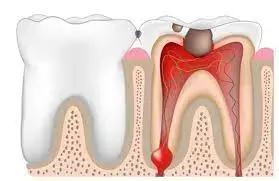- Home
- Medical news & Guidelines
- Anesthesiology
- Cardiology and CTVS
- Critical Care
- Dentistry
- Dermatology
- Diabetes and Endocrinology
- ENT
- Gastroenterology
- Medicine
- Nephrology
- Neurology
- Obstretics-Gynaecology
- Oncology
- Ophthalmology
- Orthopaedics
- Pediatrics-Neonatology
- Psychiatry
- Pulmonology
- Radiology
- Surgery
- Urology
- Laboratory Medicine
- Diet
- Nursing
- Paramedical
- Physiotherapy
- Health news
- Fact Check
- Bone Health Fact Check
- Brain Health Fact Check
- Cancer Related Fact Check
- Child Care Fact Check
- Dental and oral health fact check
- Diabetes and metabolic health fact check
- Diet and Nutrition Fact Check
- Eye and ENT Care Fact Check
- Fitness fact check
- Gut health fact check
- Heart health fact check
- Kidney health fact check
- Medical education fact check
- Men's health fact check
- Respiratory fact check
- Skin and hair care fact check
- Vaccine and Immunization fact check
- Women's health fact check
- AYUSH
- State News
- Andaman and Nicobar Islands
- Andhra Pradesh
- Arunachal Pradesh
- Assam
- Bihar
- Chandigarh
- Chattisgarh
- Dadra and Nagar Haveli
- Daman and Diu
- Delhi
- Goa
- Gujarat
- Haryana
- Himachal Pradesh
- Jammu & Kashmir
- Jharkhand
- Karnataka
- Kerala
- Ladakh
- Lakshadweep
- Madhya Pradesh
- Maharashtra
- Manipur
- Meghalaya
- Mizoram
- Nagaland
- Odisha
- Puducherry
- Punjab
- Rajasthan
- Sikkim
- Tamil Nadu
- Telangana
- Tripura
- Uttar Pradesh
- Uttrakhand
- West Bengal
- Medical Education
- Industry
Bacterial cellulose nanocrystal modified glass ionomer cements increase microshear bond strength of dentin structure

Bacterial cellulose nanocrystal (1% wt) into the conventional glass ionomer cements of Fuji IX significantly increased the microshear bond strength (μSBS) to the dentin structure of the primary teeth according to a new study. Further Bacterial cellulose nanocrystals modified glass ionomer cements are favourable restorative dental material for paediatric dentistry.
The study has been published in the International Dental Journal.
Various modifications in the formulation of glass ionomer cement (GICs) have been made in order to improve the clinical performance of these restorations. The aim of this work was to evaluate the microleakage and micro shear bond strength (μSBS) of bacterial cellulose nanocrystal (BCNC)–modified glass ionomer cement (GIC) restorations in the primary dentition.
A total number of 60 freshly extracted primary molar teeth were selected. Half of the samples were used for μSBS testing (in 2 groups, n = 15). In group 1, conventional GIC (CGIC) of Fuji IX (GC) was placed in cylindrical moulds on dentinal surfaces. In group 2, CGIC of Fuji IX containing 1% wt of BCNCs was used. μSBS was evaluated using a universal testing machine. In another part of the study, microleakage of class V restorations was assessed according to the mentioned groups (n = 15). The sectioned samples were observed under a stereomicroscope, and microleakage scores were recorded. SPSS version 16.0 (SPSS), independent samples t-test, and Mann–Whitney U test was used for statistical analysis at a significance level of P < .05.
Results:
- Results showed statistically significant differences between the μSBS of CGIC and modified GIC groups (P < .0001).
- The BCNC-modified GIC group recorded significantly higher bond strength values
- Also, microleakage scores of CGIC and BCNC-modified GIC restorations were not significantly different (P = .57).
Thus, based on the findings, it was concluded that incorporating bacterial cellulose nanocrystals (1% wt) into the conventional glass ionomer cements of Fuji IX significantly increased the microshear bond strength (μSBS) to the dentin structure of the primary teeth.
Reference:
Najmeh Mohammadi, Zahra Fattah, Lida Vaziri Borazjani. Nano-cellulose Reinforced Glass Ionomer Restorations: An In Vitro study. International Dental Journal, 2022, ISSN 0020-6539,
https://doi.org/10.1016/j.identj.2022.07.013
Dr. Shravani Dali has completed her BDS from Pravara institute of medical sciences, loni. Following which she extensively worked in the healthcare sector for 2+ years. She has been actively involved in writing blogs in field of health and wellness. Currently she is pursuing her Masters of public health-health administration from Tata institute of social sciences. She can be contacted at editorial@medicaldialogues.in.
Dr Kamal Kant Kohli-MBBS, DTCD- a chest specialist with more than 30 years of practice and a flair for writing clinical articles, Dr Kamal Kant Kohli joined Medical Dialogues as a Chief Editor of Medical News. Besides writing articles, as an editor, he proofreads and verifies all the medical content published on Medical Dialogues including those coming from journals, studies,medical conferences,guidelines etc. Email: drkohli@medicaldialogues.in. Contact no. 011-43720751


